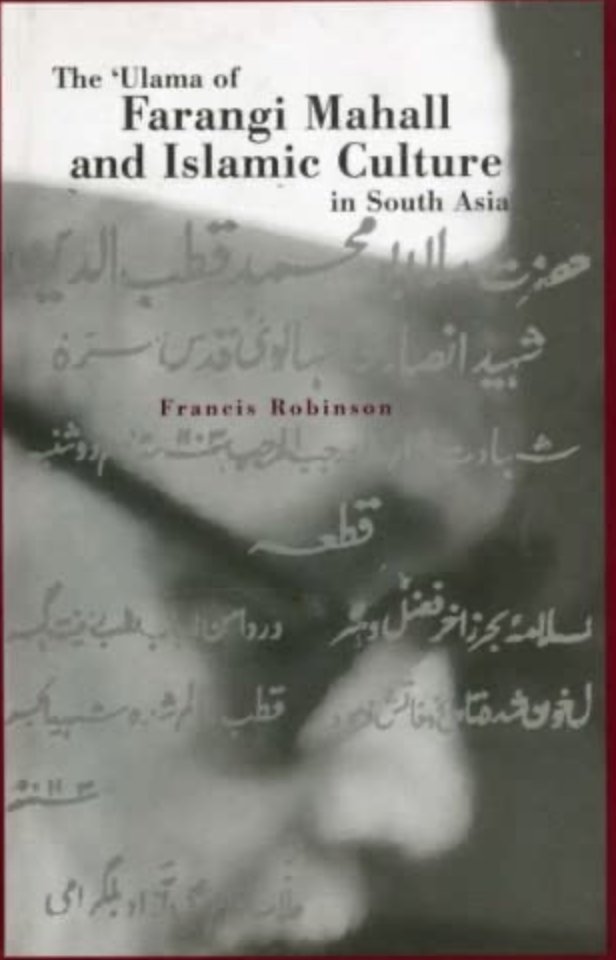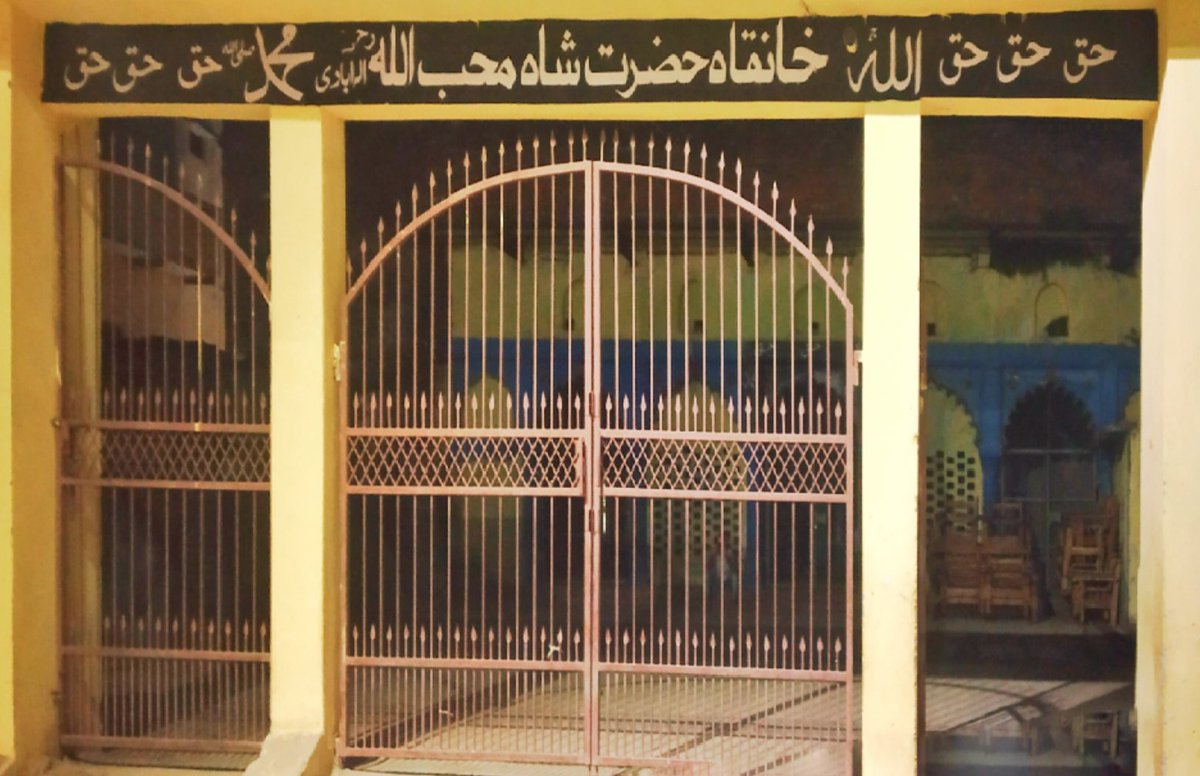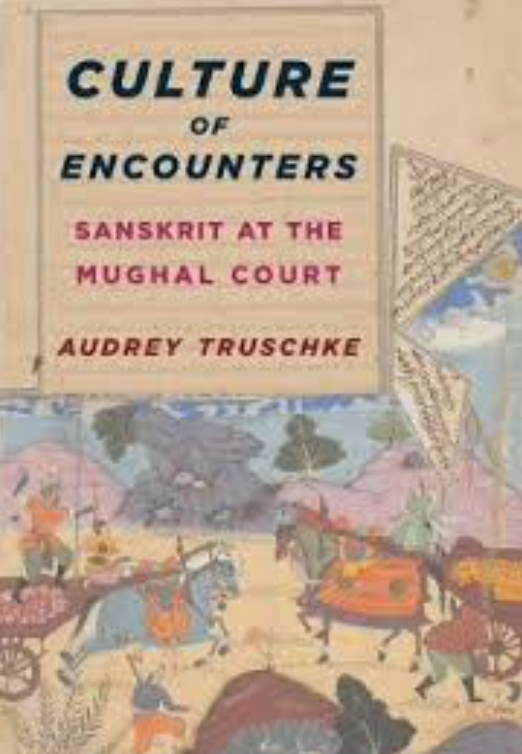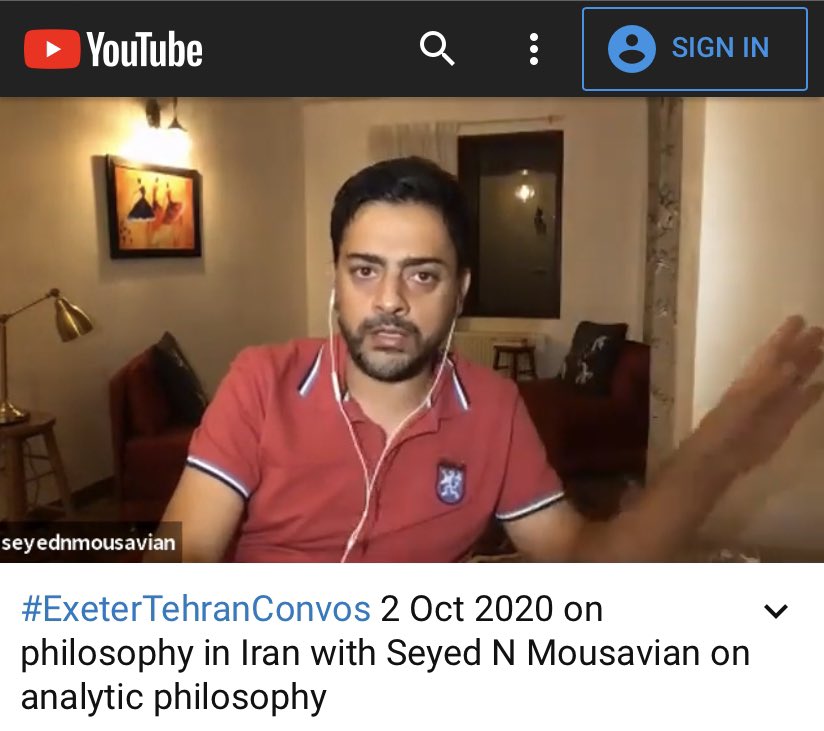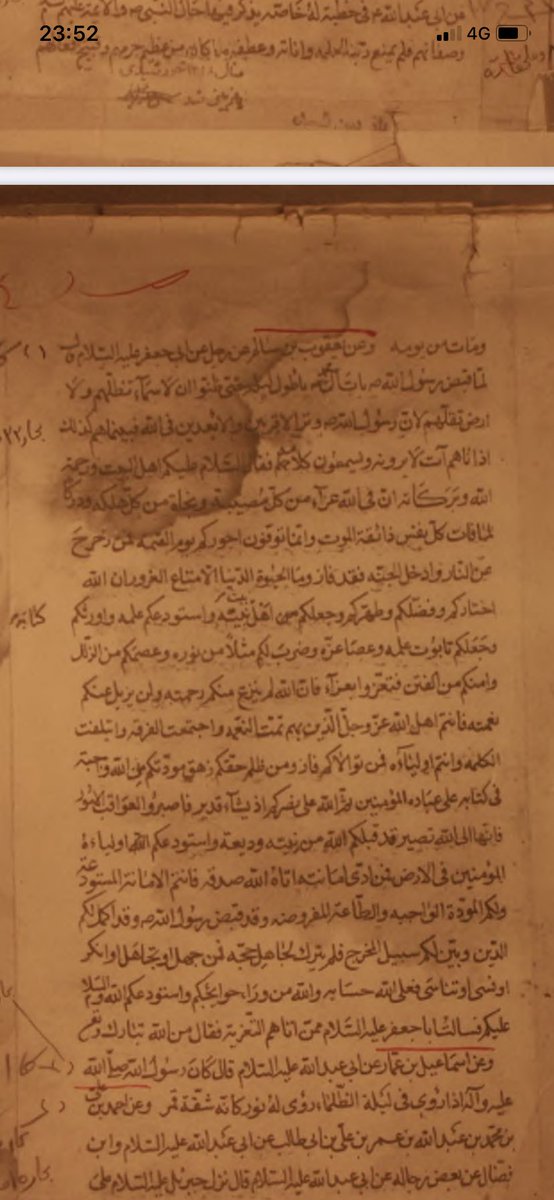
Some further thoughts on the links of #IslamicPhilosophy in #Iran and #NorthIndia relating to Mīr Muḥammad Bāqir Dāmād Astarābādī (d. 1631), who is far less known than his student Mullā Ṣadrā (d. 1636) 1/ 




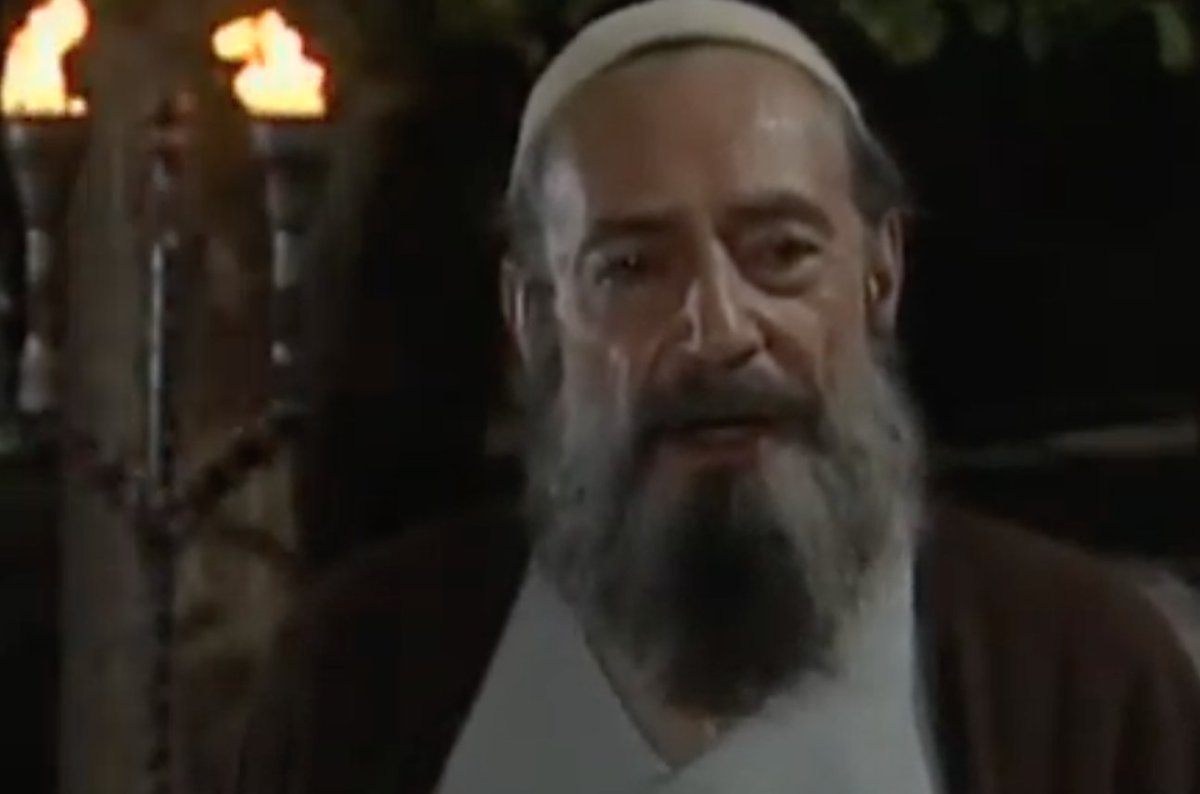
Despite being the Shaykh al-islām of Iṣfahān late in life and a leading jurist of his time - he was the grandson of the first major jurist of the Safavid empire Shaykh Nūr al-dīn ʿAlī al-Karakī (d. 1534) - his work remains little known 2/
One of the peculiarities of his fame and work is the appearance in North India of his work al-Ufuq al-mubīn leading some (including myself I must admit) to talk of a 'school of Mīr Dāmād' in India academia.edu/1270535/Mir_Da… 3/
Similarly ʿAlī Awjabī wrote an article on Mīr Dāmād in India a few years prior to mine - and Ḥāmid Nājī discusses this also magiran.com/paper/352131 4/
Apart from the debate on the nature of creation at the ontological level of the aeon (al-dahr) which I discuss in my article, one other interaction that was more lasting and significant has been indicated by Asad Ahmed and that relates to the logic text Sullam al-ʿulūm 5/
The Sullam as we know was a text of Muḥibbullāh Bihārī (d. 1707) that spawned a successful commentary traditions on conceptions and assents, discussions of universal terms, and various types of paradoxes - and the commentaries point to the connection 6/
The key connection is Mīr Dāmād's al-Ufuq al-mubīn, his own textbook on metaphysics (both generalis - or ontology - and specialis on the nature of the divine) - the second section does not seem to have been written although the concluding section indicates a link 7/ 

Ahmed points to the connection in the commentaries on Sullam to al-Ufuq through the discussion of the semantics of universal terms 8/
Mīr Dāmād in this context is mentioned - and then glossed with respect to al-Ufuq al-mubīn - by Qāḍī Mubārak Gopāmāwī (d. 1749) and Mullā Ḥamdullāh Sandīlvī (d. 1747) and later by the Khayrābādī philosophers especially Fażl-e Imām 9/
It does not seem to be the case that al-Ufuq al-mubīn was a 'darsi' text like the Sharḥ al-hidāya of Mullā Ṣadrā - although Iranian authors claimed that ʿAbd al-Ḥaqq Khayrābādī (d. 1899) taught it in Rampur and Sayyid Ḥusayn Nawnehravī in Murshidabad, both princely states 10/
Now al-Ufuq is divided into two main sections (called al-ṣarḥa), each further divided into musāqāt and fuṣūl/chapters; the first ṣarha is also only extant in 3 of the purported 6 musāqāt; the structure is as follows 11/
Ṣarḥa I: musāqa I - Ch 1 on the scope of metaphysics - which deals with the semantics of the terms existence and existent; Ch 2 on the predication of those terms and the way in which the terms and their ascription to things are produced (the question of 'jaʿl') 12/
Ch 3 on the properties of non-existence, mental considerations and also the issue of evil as privation (which is taken up by Mullā Ṣadrā in his account of providence and theodicy) 13/
Musāqa V (or perhaps better to say II): Ch 1 on simple an compound utterances and propositions that refer to natural entities; Ch 2 on modal propositions and modalities; Ch 3 proof for the existence of God (inc. response to the doubt of Ibn Kammūna on the class of necessary) 14/
Ch 4 on contingents and their mental considerations (iʿtibārāt) which includes his account of emanation and causal chains of intellects 15/
Musāqa VI (or III) begins with an exposition of the ways in which we makes sense of ontological levels; Ch 1 on time (zamān); Ch 2 on the aeon or perpetuity (dahr) and the level of eternality (sarmad), includes his discussion of the nature of creation at the level of the aeon 16/
Ch 3 on types of eternity, substance and continuity that brings in a discussion of motion from the physics; Ch 4 on types of priority and posteriority; Ch 5 refutation of theologians on the God-world relationship and it ends 17/
What this shows is that: 1) issues such as the proof for the existence of God and the nature of creation that are often considered to be theological (metaphysics specialis) are engaged in the ontology 2) Musāqa VI (or III) is entirely concerned with his arguments for creation 18/
3) The most important point right at the beginning concerns existence which ultimately for Mīr Dāmād only applies to God (in that sense he supports waḥdat al-wujūd) and when applied as a term for contingents it is merely an existential quantifier 19/
4) What we see in Mīr Dāmād - and Mullā Ṣadrā - is the restructuring of ontology to subsume much of the discussion of logic on propositions, conceptions and assents as well as predication; the semantics of ontology do not leave any separate need to engage logic 20/
• • •
Missing some Tweet in this thread? You can try to
force a refresh


